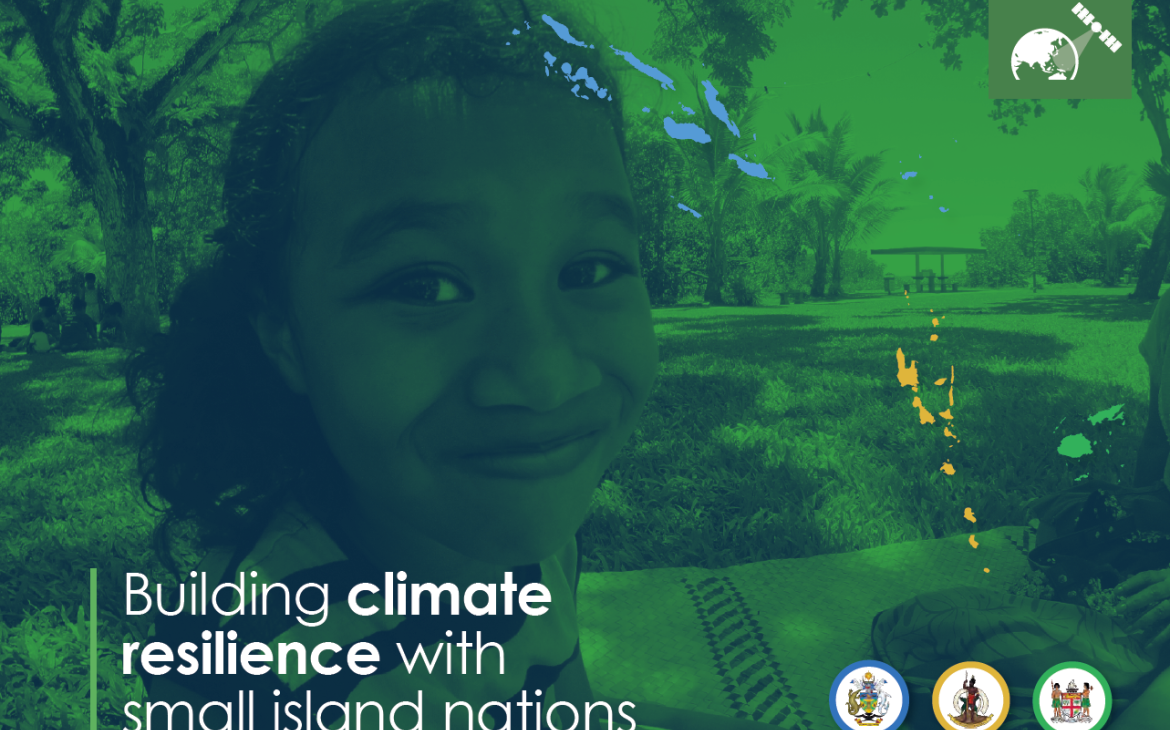24 June 2019, Geneva, Switzerland – In February 2019, the CommonSensing project was officially launched in Fiji, Vanuatu and Solomon Islands and the project has now moved forward to Phase 2: Addressing Needs. CommonSensing aims to support three selected Commonwealth Small Island Developing States (SIDS) with improving national climate resilience through the use of satellite remote sensing applications. Bringing together eight organisations with world-leading expertise in satellite remote sensing, sustainable development, business analysis, data analysis and modelling, as well as climate financing, the project benefits from the varied experiences and strengths of the consortium partners.
Project Rationale
Small island nations located in the Pacific are exposed to the damaging effects of climate change. Such changes in the climate system have direct effects on the livelihoods, the economy, overall development and the very existence of many small island nations. Urgent action towards increasing the capacity for climate resilience is therefore required.
Findings from a baseline evaluation report that was finalised in May 2019 verified that indeed, the vast majority of local stakeholders are concerned about their countries’ exposure to economic loss and damage from natural hazards, and many are also concerned about national food security. The baseline evaluator also found evidence that the limitations associated with a shortage of technical expertise and equipment in the three countries contribute to less frequent use of geospatial data for strategic planning and decision making.
Activities in Two Main Areas
Phase 1: Understanding Challenges included two scoping missions to Fiji, Vanuatu and Solomon Islands, where a range of national and regional stakeholders were consulted. The following activities were proposed based on the outcomes (i.e. gap analysis and user needs reports) of these scoping missions and the validation trips that followed.
- In terms of Earth Observation (EO) derived services, CommonSensing will use EO data to provide country partners with access to vital information regarding disaster and climate risks to inform planning, food security needs and impact on the environment. This information will be readily available to users through easily accessible services.
- As for capacity development and sustainability, the project consortium will contribute to national and regional technical capabilities to inform policy and secure funding for climate change resilience programmes beyond the three-year project. In addition, the consortium members will ensure the long-term sustainability of the information services they develop with the three country partners.
To achieve the project goals, the consortium will also provide the evidence and data needed for these island states to apply for climate funds with a higher degree of success than present. These countries will simultaneously receive the support of The Commonwealth’s Climate Finance Access Hub to make successful applications to international funds. This higher success rate in applications seeks to enable the three countries to obtain the necessary funding to protect critical infrastructure, build resilience into their economy and combat the growing effect of climate change.
Expected Impacts
CommonSensing will build the capacity of governments, ministries and agencies in the three partner countries to strengthen climate resilience and harness the full potential of satellite EO data to support evidence-based decision making.
Economic benefits
- Improved multi-sectoral mitigation/adaptation investments due to increased access to climate funds in target countries
- Reduced economic losses from natural disasters
- Reduced costs in accessing innovative software solutions and EO data
Social benefits
- Reduced human losses from natural disasters
- Increased awareness of Disaster Risk Reduction (DRR) and Climate Change Adaptation (CCA) for building resilient communities
Environmental benefits
- Better information to support the management of natural resources and improved ecosystem conservation through the use of EO-based solutions
- Better information to support the planning and implementation of climate change adaption initiatives to address the adverse impacts of climate change on sustainable development
With the goal of establishing the entry-level conditions of the project against which progress can be measured and evaluated, the aforementioned baseline evaluation report also established the validity of the project’s implementation strategy. Findings from the report highlighted challenges that may be faced during project implementation, and the evaluator offered recommendations for project management that will enhance project delivery and data collection going forward.
A more detailed description of the evaluation findings and recommendations can be viewed on the UNITAR website.
The project will run until March 2021 with the provision of a Sustainability Roadmap at the end. For more information, follow us at @UNOSAT and @EOCommonSensing.
Supported by the UK Space Agency’s International Partnership Programme (IPP), the project consortium is led by UNITAR-UNOSAT working with the Commonwealth Secretariat, the Satellite Applications Catapult, Devex International, the UK Met Office, Sensonomic and the University of Portsmouth.
Relevant article: Q&A with Einar Bjorgo (Manager, UNOSAT & Project Director, CommonSensing): How satellite data can take on climate change


